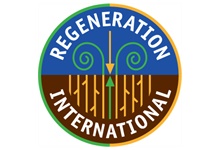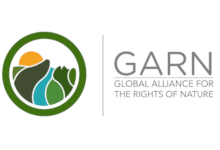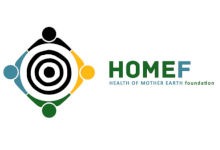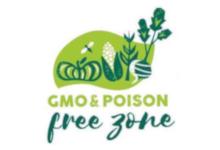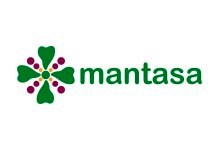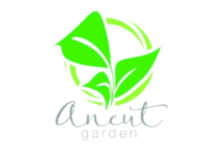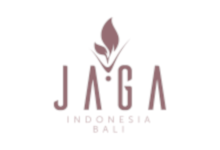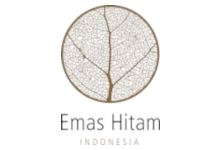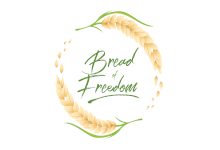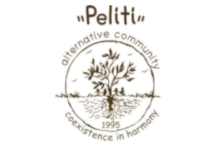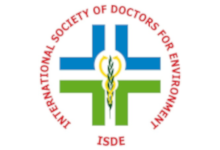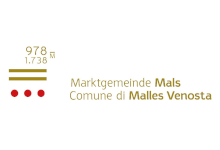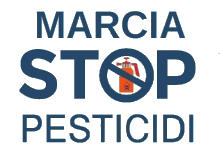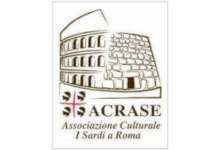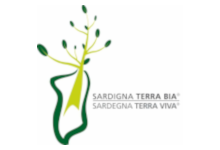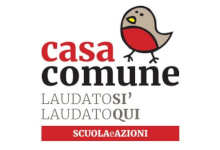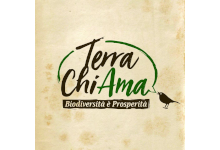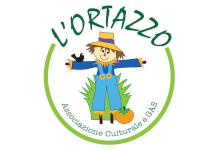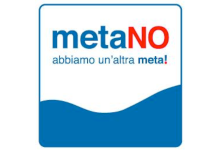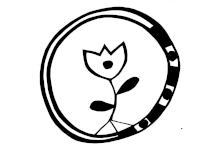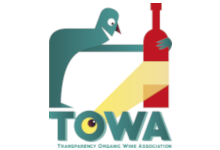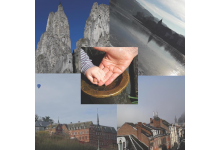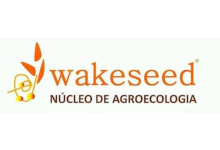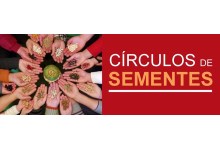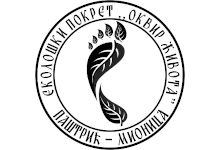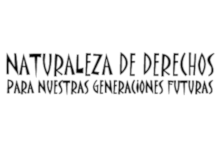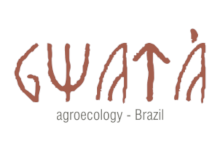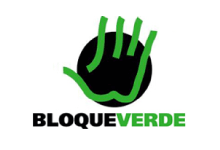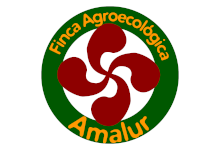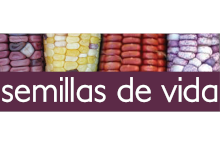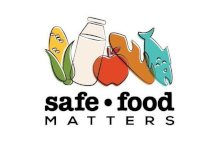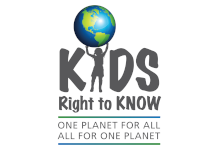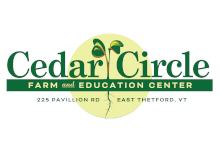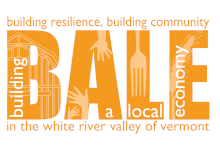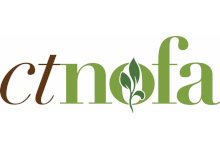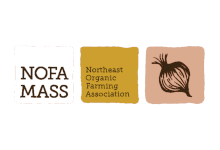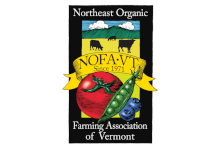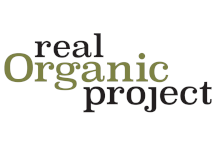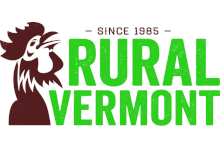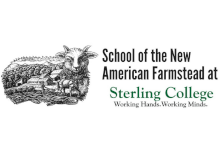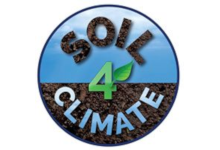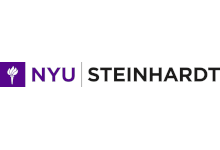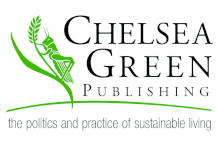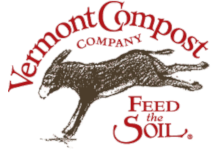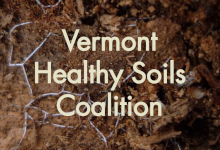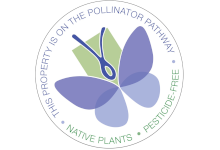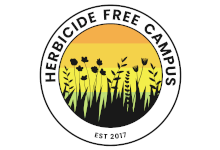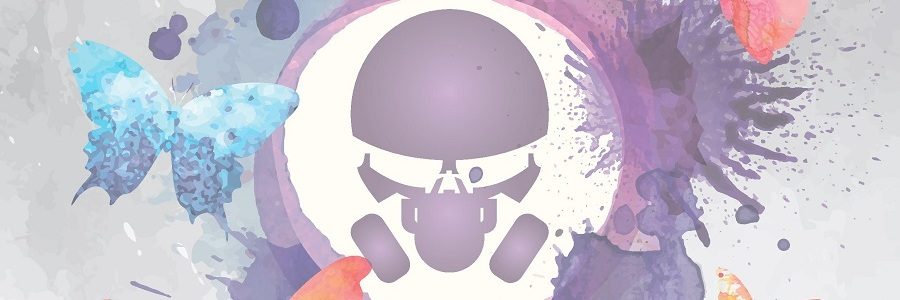
A commitment to the Earth – Take Action – Resources for Action – Publications –
Featured Articles – Timeline of Events and Actions –
Poison Free Food and Farming Movement around the World – Testimonials – Videos
–
The Poison-free Food and Farming 2030 Campaign is an invitation to women and young generations, citizens and people in institutions, indigenous people everywhere, farmers, producers and consumers of food, local communities north and south, from the local to the global, who are already mobilizing to defend the earth and future generations, to create a unified movement for change.
Join us in becoming one voice in our rich diversity, to create poison free organic zones and local ecological food systems, that rejuvenate biodiversity, the soil and water, that create climate resilience and climate stability, that protect the health and well-being of our children and the heirs of all species.
Join the movement for Poison Free, Fossil Fuel Free, Organic Communities – Sign the Pledge
–
–
Link to: Timeline of Events and Actions
Link to: Poison Free Food and Farming Movement around the World
How we produce, distribute, consume food is increasingly becoming the centre of the multiple crises we face today. Whether it is ecological crises of biodiversity decline, climate change or the health crisis of hunger, malnutrition and the spate of diseases like cancer linked to pesticides and toxics in our environment and food chain.
The root of the problem is a growing dependence on a dysfunctional paradigm that depends on pesticides and economies of scale to accelerate the quantities of food produced, but at the expense of nutritional quality, causing a wide variety of detrimental impacts on health as well as the ecosystem. Evidence of the toxic consequences of the policies of agrichemical mega corporations, which we call the Poison Cartel, is growing by the day: species are disappearing, small farmers are losing their livelihoods, rural populations are being driven from their land to make way for industrial agriculture, and consumers increasingly have no option other than to buy food grown in increasingly contaminated soils.
But there exists an alternative approach to food sovereignty that is based on biodiversity, combines quantity and quality, to maximise the benefits to the health and well being of the planet and people. The ecological paradigm of agriculture, food, nutrition and health is based on a systems approach that is displacing the current experiences and trends toward degradation with policies, practices, and knowledge that ensures renewal, a revived reliance on the health potentialities of the natural food systems, working toward harmony with nature, food sovereignty and seed resilience in the hands of farmers, as well as local food economies, which can sow the seeds of justice, dignity, sustainability, peace and true democracy.
Our work on Food for Health and our Manifesto, aim at highlighting the inseparable link between food and health, developing comprehensive strategies in synergy with different stakeholders, to overcome the model of industrial agriculture, encouraging the convergence and action of the movement for Agroecology and Public Health movements to reach a common vision of sustainable development, which must be equitable and inclusive.
A Commitment to the Earth
On 1st October 2017, at Bhoomi, the Earth festival in New Delhi, communities from the Himalaya who have been practising chemical free organic farming joined with Communities in the Alps who have become pesticides free to launch the creation of a Global Network of Poison Free Organic communities and Zones. The Chief Minister of Sikkim who has made Sikkim the first 100% organic state in the world, and Mayor Ulrich Veith of Mals who have made his village poison free, were part of the launch of the poison free network.
Poison based industrial agriculture, not only is the biggest driver of species extinction, wiping out the diversity of crops we have grown and eaten, pushing insects to extinction, including bees and butterflies that pollinate our crops, and give us one third of the food we eat, chemical farming and industrial agriculture is also contributing to 50% of the greenhouse gases leading to climate change. Poisons in our food are also leading to a disease epidemic that is plaguing people everywhere.
Biodiversity is essential to allow for evolution of Life on Earth and as such its capacity of adaptation. This diversity has been developed over thousands of generations and we have a duty is to safeguard it. We are members of the Earth family, not masters , owners We as humans do not have the right to exterminate our Earth relatives while closing the future for our children. When we push other species to extinction we are sowing the seeds of our own extinction.
Through poison free food and farming, we sow the seeds of Earth Democracy – of Seed Freedom, Food Freedom, Earth Freedom, for a brighter future for all beings, including our children, on our living, vibrant and generous Earth.
TAKE ACTION
–
The transition towards local, ecological and diverse food systems is a social, economic and democratic imperative
Actions for Earth Democracy through Seed Freedom, Food Freedom, Earth Freedom
- Save grow and reproduce traditional seed varieties to safeguard biodiversity, not as museum pieces in gene banks, but in Living Seed Banks as a basis for a healthy planet and healthy people.
- Grow Gardens of Hope, Gardens of Health , also at urban level, which favour the diffusion of nourishing and healing plants.
- Create and support local food economies, farmers markets, CSAs, biodistricts, ecozones.
- Create links between schools, hospitals, health care centres and local organic fresh, diverse food systems.
- Create poison free zones, communities, farms and food systems.
- Demand labelling of chemicals and GMOs on the basis of fundamental right to know.
- Organise to demand that public money and taxes stop subsidising unhealthy food systems that create a burden of disease for us and shift all public support including policy to health promoting agriculture and food.
- Get policies passed for a transition to poison free, fossil fuel free living economies at whatever level possible – local, regional, national.
- Protect and defend forests, grasslands and small farms which hold the climate solution in regeneration of biodiversity and chemical free organic practices
- Do not co-operate with laws that force unhealthy agriculture and food system.
- Create organic food communities through living democracy and living economies for the health of the planet and the health of people.
- Celebrate 2nd October (Gandhi’s birth anniversary) to 16th October (world food day) as days of action for Seed freedom, Food freedom & Earth freedom.
RESOURCES FOR ACTION
–
REPORTS – BOOKLETS
Food for Health and Freedom – Biodiversity for a Healthy Planet and Healthy People, Extract from the Food for Health Manifesto – Booklet
Food for Health Manifesto – Introduction and background
The Future of our Daily Bread: Regeneration or Collapse – REPORT
The Toxic Story of Roundup: Freedom from the Poison Cartel through Agroecology – REPORT
“Poisons in Our Plate” – Glyphosate and other poisons: from field to table – Introduction
LEAFLETS – BROCHURES
Poison Free Pledge and Action 2030 PDF (4 pages)
Poison Free Food and Farming Pledge LEAFLET (2 pages)
Actions for a Living Planet LEAFLET (2 pages)
Food for Health LEAFLET (2 pages)
Road map: the route towards transformation: Civic Actions – Government Actions – Local, regional, national, international – Changes in the International Trade Rules and Systems: Responsibility of the United Nations and its relevant bodies
Fo.ol Circle vs Living Circles – Poster
The Poison Cartel – Fact Sheet
INFOGRAPHICS
Campaign related Reports and Scientific Studies
Learn more on Food for Health in our Main Themes area.
Related Publications and Articles by Navdanya International
BOOKS
The War on Bugs, Will Allen, Chelsea Green Publishing, 2008
The Myths of Safe Pesticides, Andre Leu, Acres U.S.A, 2014
Biodiversity, Agroecology, Regenerative Organic Agriculture: Sustainable Solutions for Hunger, Poverty and Climate Change, Vandana Shiva, André Leu, Westville Publishing House, 2018
TIMELINE OF EVENTS AND ACTIONS
–
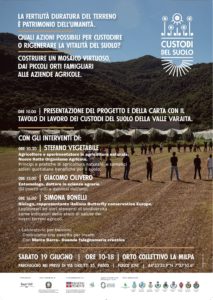 Soils Custodians Project Launch: June 2021 – Cuneo, Italy – The project is promoted by Spazio Vitale OdV and has obtained the support of the Ministry of Labour and Social Policies in Italy, with the collaboration of the Piedmont Region, the Volunteer Service Centre, the Agricultural Institute of Verzuolo and has been sponsored by the Monviso Park and the municipalities of Piasco, Rossana, Venasca, Isasca, Brossasco, Melle, Sampeyre, Casteldelfino and Bellino. The programme involves farmers, local businesses, producers and craftspeople. Meetings and training days will be organised to exchange knowledge and know-how. “Improving farmland through good practices by raising awareness in communities with the notion that we all are responsible for the soils that we farm: the “Soil Custodians” project was born in the Cuneo area and is part of the civic actions proposed in the “Food for Health” manifesto (2018) published by the Navdanya International This project is intended to remind us that the only way to ensure access to food and a dignified life for all starts through agroecology, in the sense of an agriculture based on respect for the soil and the lives of communities.” (Quote translated from Italian. Source Arrivano i “Custodi del Suolo” che si prendono cura della terra, by Lorena Di Maria – Italia che cambia, 15 June 2021).
Soils Custodians Project Launch: June 2021 – Cuneo, Italy – The project is promoted by Spazio Vitale OdV and has obtained the support of the Ministry of Labour and Social Policies in Italy, with the collaboration of the Piedmont Region, the Volunteer Service Centre, the Agricultural Institute of Verzuolo and has been sponsored by the Monviso Park and the municipalities of Piasco, Rossana, Venasca, Isasca, Brossasco, Melle, Sampeyre, Casteldelfino and Bellino. The programme involves farmers, local businesses, producers and craftspeople. Meetings and training days will be organised to exchange knowledge and know-how. “Improving farmland through good practices by raising awareness in communities with the notion that we all are responsible for the soils that we farm: the “Soil Custodians” project was born in the Cuneo area and is part of the civic actions proposed in the “Food for Health” manifesto (2018) published by the Navdanya International This project is intended to remind us that the only way to ensure access to food and a dignified life for all starts through agroecology, in the sense of an agriculture based on respect for the soil and the lives of communities.” (Quote translated from Italian. Source Arrivano i “Custodi del Suolo” che si prendono cura della terra, by Lorena Di Maria – Italia che cambia, 15 June 2021).
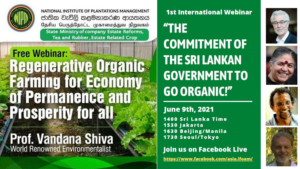
Sri Lanka’s shift towards organic farming – On April 27, 2021, the Sri Lankan government decided to ban importing chemical fertilizers, pesticides and herbicides and to replace them with organic inputs and methods. On the 7th and 9th of June, Dr. Vandana Shiva, President of Navdanya International, took part in two online workshops on the Sri Lankan government’s project to go towards organic agriculture and ban agrochemicals. Read more
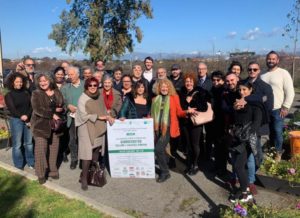 Launch of the process for the creation of a “Roman Hills” Biodistrict/Eco-Region (Biodistretto delle Colline e dei Castelli Romani). To create a “Bio-district of Roman Hills” on the outskirts of Rome, the largest agricultural municipality in Europe. This is the aim of the organizing committee’s coordination group of the “Biodistretto delle Colline e dei Castelli Romani”, who presented the initiative at the Tor Vergata Botanical Garden of the University of Rome on February 14, 2020. Representatives of local governments, producers, consumers and leading national associations.
Launch of the process for the creation of a “Roman Hills” Biodistrict/Eco-Region (Biodistretto delle Colline e dei Castelli Romani). To create a “Bio-district of Roman Hills” on the outskirts of Rome, the largest agricultural municipality in Europe. This is the aim of the organizing committee’s coordination group of the “Biodistretto delle Colline e dei Castelli Romani”, who presented the initiative at the Tor Vergata Botanical Garden of the University of Rome on February 14, 2020. Representatives of local governments, producers, consumers and leading national associations.
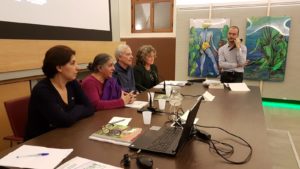 Launch of the Report “The Future of Food, Farming with Nature, Cultivating the Future”. The report brings together international experts and gathers evidence of global resistance against the industrial agrifood system, as well as examples of good ecological practices among farmers, local communities and civil society organizations, as part of Navdanya International’s campaign for Poison-free Food and Farming. In continuation of the work of the International Commission on the Future of Food and Agriculture, the report offers a global perspective and is a sequel to the analysis of agri-food systems begun with the publication of the Food for Health Manifesto of 2018.
Launch of the Report “The Future of Food, Farming with Nature, Cultivating the Future”. The report brings together international experts and gathers evidence of global resistance against the industrial agrifood system, as well as examples of good ecological practices among farmers, local communities and civil society organizations, as part of Navdanya International’s campaign for Poison-free Food and Farming. In continuation of the work of the International Commission on the Future of Food and Agriculture, the report offers a global perspective and is a sequel to the analysis of agri-food systems begun with the publication of the Food for Health Manifesto of 2018.
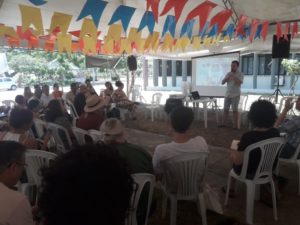 XI Brazilian Congress of Agroecology – Navdanya International presented its campaing for Poison-free Food and Farming and participated in workshops and debates, joining forces with “Agrotoxico Mata” campaign. The theme of this year’s congress was “The Ecology of Knowledge: Science, Culture and Art in the Democratization of Agri-Food Systems”.
XI Brazilian Congress of Agroecology – Navdanya International presented its campaing for Poison-free Food and Farming and participated in workshops and debates, joining forces with “Agrotoxico Mata” campaign. The theme of this year’s congress was “The Ecology of Knowledge: Science, Culture and Art in the Democratization of Agri-Food Systems”.
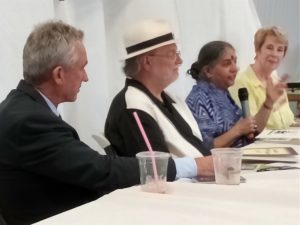
USA 2019 – Panel debate at the Heirloom Expo
“Poison-free, Fossil fuel-free Food & Farming Communities: 2030” – Panel at Heirloom Expo, California – The highlight of this year’s edition of the National Heirloom Expo (Santa Rosa, California, 10-12 September 2019) was a panel presentation on the health of the planet featuring renowned activist Robert F. Kennedy Jr., Dr. Vandana Shiva, President of Navdanya International, California Guild President Bob McFarland and Mary Jacobs, Friends of Navdanya USA. A crowd of thousands of spectators gathered for the presentation Topics discussed included global warming, the sanctity of non-engineered seeds, and pesticides that are poisoning our planet.
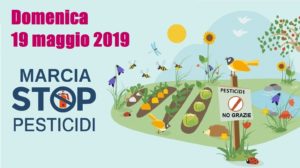
Italy – On Sunday, 19 May 2019 a Stop Pesticides Day, coordinated by Marcia Stop Pesticidi, took place in 7 different locations accross Italy, with the support of 227 organisations and groups, from large international, national and regional associations, to small local groups, that formally joined the protest: a democratic and people’s action for Civil Rights, first of all the Right to Health. Read the Stop Pesticides Manifesto.
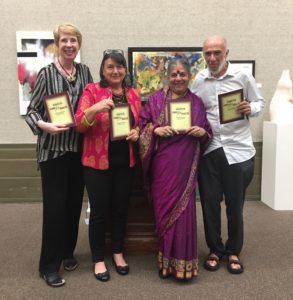 In collaboration with Friends of Navdanya and Becket Films (The Seeds of Vandana Shiva), Dr Vandana Shiva, president of Navdanya International launched the Food for Health Manifesto in Santa Barbara, California, on 12 May 2019. Members of the Group of Experts, Hilal Elver, UN Special Rapporteur on the Right to Food, Richard Falk, Professor of International Law Emeritus at Princeton University, along with Mary Jacobs, Friends of Navdanya USA, joined Dr Vandana Shiva at the event. Download:
In collaboration with Friends of Navdanya and Becket Films (The Seeds of Vandana Shiva), Dr Vandana Shiva, president of Navdanya International launched the Food for Health Manifesto in Santa Barbara, California, on 12 May 2019. Members of the Group of Experts, Hilal Elver, UN Special Rapporteur on the Right to Food, Richard Falk, Professor of International Law Emeritus at Princeton University, along with Mary Jacobs, Friends of Navdanya USA, joined Dr Vandana Shiva at the event. Download:
MANIFESTO – FOOD FOR HEALTH: CULTIVATING BIODIVERSITY, CULTIVATING HEALTH
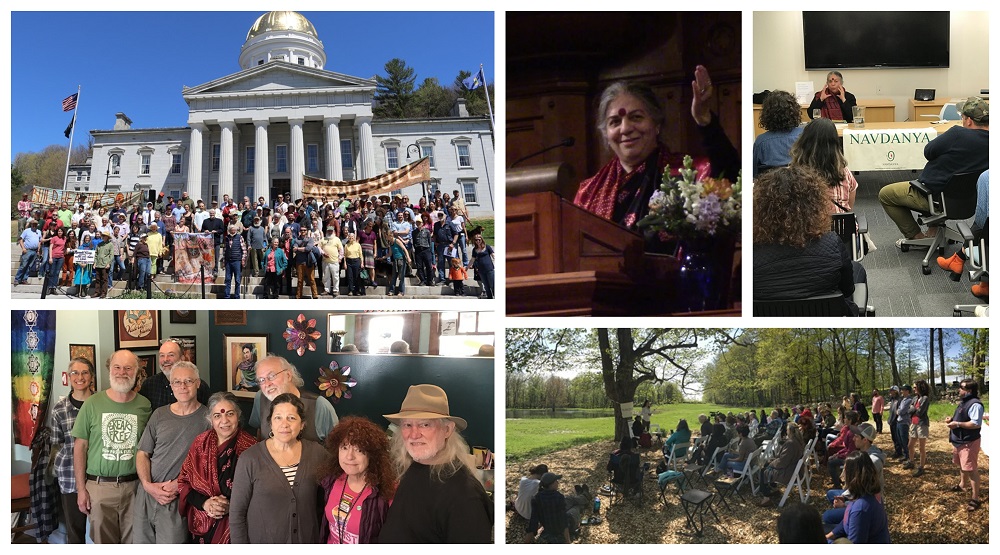 USA North East Earth Journey for Poison Free Food and Farming 2030 – Navdanya International and Friends of Navdanya USA, in collaboration with movements of the USA North East, launched the “Northeast Earth Journey for Poison-free Food and Farming” with Dr Vandana Shiva on May 4 when she delivered the commencement address at Sterling College in Craftsbury Common VT. On May 5, she led a daylong workshop at Sterling College for activists focused on “Strategies for Social and Environmental Justice.” On Monday, May 6, Dr. Shiva spoke and presented an international pledge for “Poison-Free Food & Farming by 2030” to state policymakers and collaborating advocacy organizations in front of the Vermont Statehouse in Montpelier. From Vermont, Dr. Shiva proceeded to Massachusetts, where she shared the Pledge in Northampton MA on May 6th and to Connecticut on May 7th. From Connecticut to New York, where a lecture on “Rethinking Food and Farming by 2030” was held on May 7th.
USA North East Earth Journey for Poison Free Food and Farming 2030 – Navdanya International and Friends of Navdanya USA, in collaboration with movements of the USA North East, launched the “Northeast Earth Journey for Poison-free Food and Farming” with Dr Vandana Shiva on May 4 when she delivered the commencement address at Sterling College in Craftsbury Common VT. On May 5, she led a daylong workshop at Sterling College for activists focused on “Strategies for Social and Environmental Justice.” On Monday, May 6, Dr. Shiva spoke and presented an international pledge for “Poison-Free Food & Farming by 2030” to state policymakers and collaborating advocacy organizations in front of the Vermont Statehouse in Montpelier. From Vermont, Dr. Shiva proceeded to Massachusetts, where she shared the Pledge in Northampton MA on May 6th and to Connecticut on May 7th. From Connecticut to New York, where a lecture on “Rethinking Food and Farming by 2030” was held on May 7th.
Also read: Poison-Free Food & Farming Tour, by the School of the New American Farmstead at Sterling College.
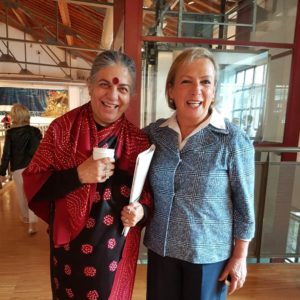 New alliances in the global movement for Poison-free Food and Farming – The president of Navdanya International, Vandana Shiva met Fiorella Belpoggi, director of the research area of the Ramazzini Institute, specialized in research on pesticides and their effects on human health. A meeting of great importance for the future of our planet, which took place on May 2, 2019, on the occasion of Dr Shiva’s lecture at the event ‘Vetrine di libertà’, organiseded by the Women’s Library of Milan.
New alliances in the global movement for Poison-free Food and Farming – The president of Navdanya International, Vandana Shiva met Fiorella Belpoggi, director of the research area of the Ramazzini Institute, specialized in research on pesticides and their effects on human health. A meeting of great importance for the future of our planet, which took place on May 2, 2019, on the occasion of Dr Shiva’s lecture at the event ‘Vetrine di libertà’, organiseded by the Women’s Library of Milan.
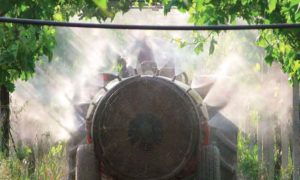 Italy, April 2019 – A coalition of scientists, doctors, jurists and economists, led by ISDE – International Society of Doctors for the Environment and Navdanya International, launched a call to Italian Parliamentarians to revoke art. 6 and 8 of the new Legislative Decree no. 152/2006, also known as the ‘Emergency Decree’, which allows public authorities to act in derogation of important public health regulations and environmental protection standard. If articles 6 and 8 of the Decree are not urgently modified, as of today, with the pretext of another agronomic emergency, government will be able to override a constitutional civil principle as fundamental as it is elementary: the right of all people to a safe, clean and healthy environment.
Italy, April 2019 – A coalition of scientists, doctors, jurists and economists, led by ISDE – International Society of Doctors for the Environment and Navdanya International, launched a call to Italian Parliamentarians to revoke art. 6 and 8 of the new Legislative Decree no. 152/2006, also known as the ‘Emergency Decree’, which allows public authorities to act in derogation of important public health regulations and environmental protection standard. If articles 6 and 8 of the Decree are not urgently modified, as of today, with the pretext of another agronomic emergency, government will be able to override a constitutional civil principle as fundamental as it is elementary: the right of all people to a safe, clean and healthy environment.
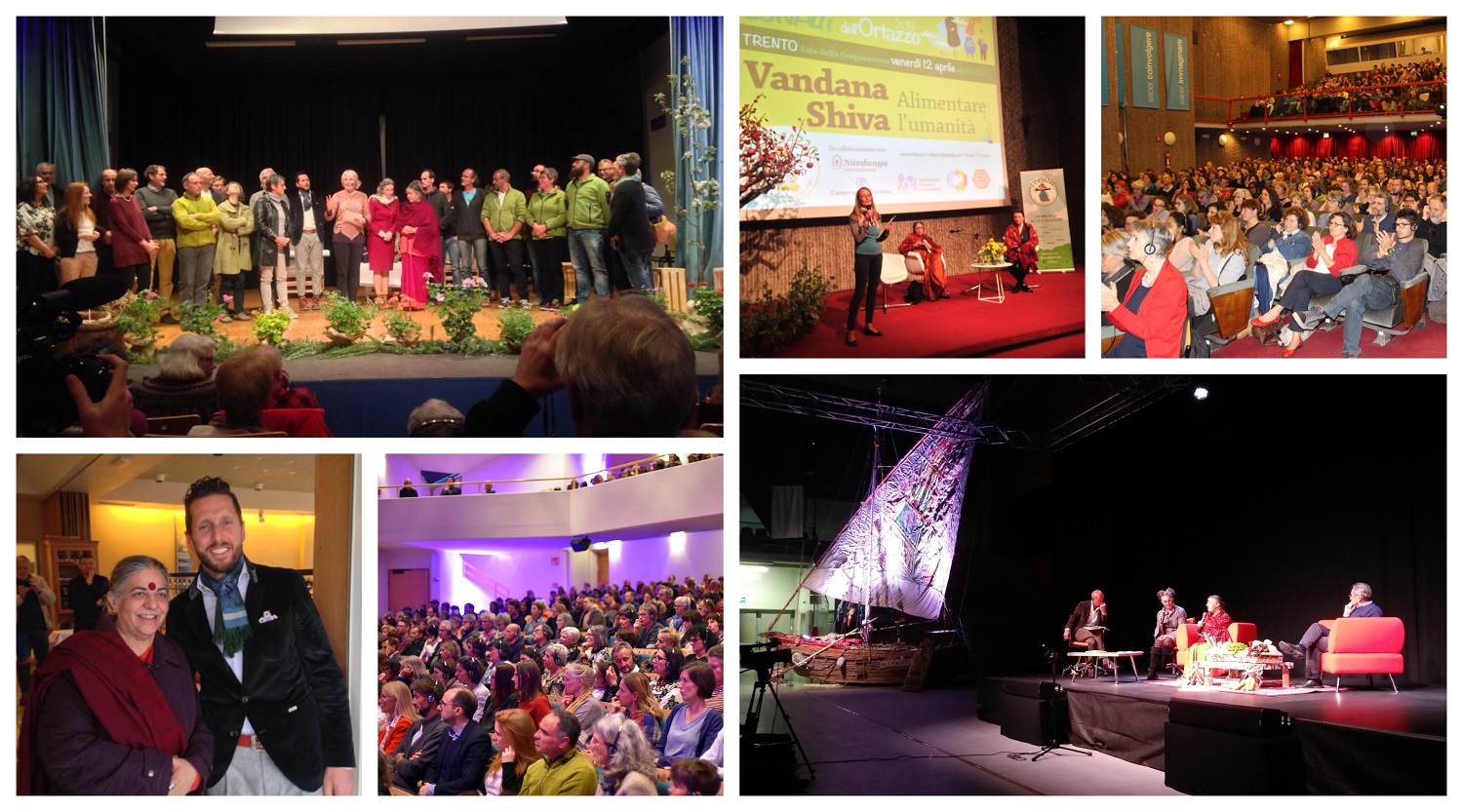
Vandana Shiva, president of Navdanya International, was in Italy from 9 to 13 April to promote the international Campaign for “Poison-free Food and Farming“. An ecological mobilization tour that touched several Italian destinations: Campobasso, Bassano del Grappa, Bolzano, Malles, Trento and Turin. Read more in the Press Release.
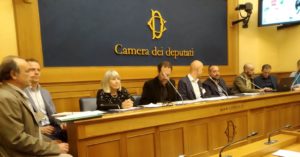
On 26 March a Press Conference was held at the Italian Chamber of Deputies on the issue of the alarming levels of pesticides use in the region of Veneto. Citizens’ committes will present a petition which demands the application of the Precautionary Principle and that people’s right to health is respected.
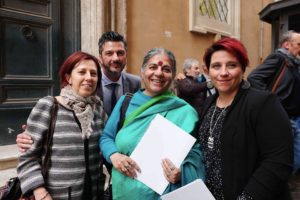 Following up the Press Conference held in Rome on 7 March, the San Giacomo Kindergarten Parents Boards obtained an order from the Mayor of Vittorio Veneto that requires that the controversial vineyard being planted near the kindergarten’s building, must be farmed with organic farming techniques.
Following up the Press Conference held in Rome on 7 March, the San Giacomo Kindergarten Parents Boards obtained an order from the Mayor of Vittorio Veneto that requires that the controversial vineyard being planted near the kindergarten’s building, must be farmed with organic farming techniques.

In March 2019, on the very same days when the Court of Auditors ruled that the 2014 referendum against the use of pesticides of the municipality of Mals, South Tyrol, Italy, was not to be implemented, the results of an investigation carried out by the Munich Environment Institute in 2018 that measured the presence of pesticides in the air in Vinschgau were announced. Overall, the results clearly demonstrate a considerable transport of pesticides over distances of kilometres up to isolated lateral valleys.
On April 19, 2019, the Court of Auditors of Bolzano acquitted the mayor of Malles Venosta, Ulrich Veith, of the charge of tax damage in connection with the referendum on the use of pesticides in the municipality held in the summer of 2014.
In January 2020, also the lawsuit that saw the promoters of the referendum against pesticides in Mals, fight against the accusations brought against them in 2014 by the aggregation of 140 local farmers, ended with an acquittal.
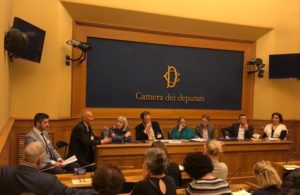
On 7 March 2019, Navdanya International organized a press conference at the Press Room of the Italian Chamber of Deputies, for the launch of its campaign for Poison Free Food and Faming 2030. Participating were Vandana Shiva – President of Navdanya International, Ulrich Veith – Mayor of Mals, Davide Marino – Roma Tre University, Nadia El-Hage Scialabba – TMG Think tank for Sustainability-Berlin, and Patrizia Gentilini of the ISDE (International Society of Doctors for the Environment). Also attending were representatives of local movements from the north of Italy that are protesting against the massive use of pesticides that are poisoning the Italian countryside: Tiziano Quaini – coordinator of the Associazione Veneta dei Produttori Biologici e Biodinamici (Venetian Organic and Biodynamic Producers Association) – representing Marcia Stop Pesticidi (Stop Pesticides March), Claudio Bizzotto – Terra Chiama, Comitato genitori Asilo San Giacomo (San Giacomo Kindergarten Parents Board), Maria Grazia Mammuccini – Federbio. The event was also attended by Italian MPs: Sara Cunial (M5S); Silvia Benedetti (Mixed); Susanna Cenni (Pd); Saverio De Bonis (Mixed); Rossella Muroni (LeU). Moderator: Manlio Masucci, Navdanya International.
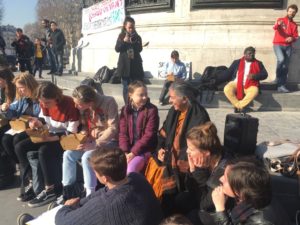 In February 2019 a series of events was organised in France, in collaboration with the association SOL to promote the transition towards poison-free and organic food systems. In Tolouse, Dr Vandana Shiva met with students of the Ecole Nationale Supérieure Agronomique (National School of Agronomy). In Paris she gave a keynote speech at the Women4Climate Conference and met with young activists striking for climate, led by Greta Thunberg. The tour ended with a conference about Ecological Transition co-organised by SOL and Fondation Raja-Danièle Marcovici.
In February 2019 a series of events was organised in France, in collaboration with the association SOL to promote the transition towards poison-free and organic food systems. In Tolouse, Dr Vandana Shiva met with students of the Ecole Nationale Supérieure Agronomique (National School of Agronomy). In Paris she gave a keynote speech at the Women4Climate Conference and met with young activists striking for climate, led by Greta Thunberg. The tour ended with a conference about Ecological Transition co-organised by SOL and Fondation Raja-Danièle Marcovici.
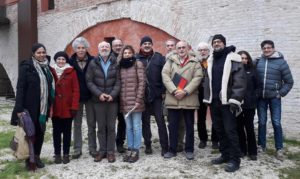
Italy 2018 – Creation of the “Stop Pesticides March” Coordination (Photo: Marcia Stop Pesticidi)
In December 2018, citizens’ committees of Italy, which organized the Stop Pesticides March (Marcia Stop Pesticidi) in previous years, along with other civil society movements, created the “Stop Pesticides March” coordination task force.
Also read: Prosecco: A story of not a sparkling wine, but a local resistance against pesticides
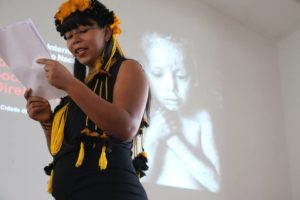
Brazil 2018 – Creation of a Latin American network to combat agrotoxics and promote agroecology
In December 2018 in Goiás, Brazil, civil society movements from ten countries, along with family farmers, indigenous communities, scholars and professionals in various fields created a Latin American network to combat agrotoxics and promote agroecology, during the 1st International – 3rd National Seminar on Agrochemicals: Socio-environmental Impacts and Human Rights. In the document extracted from the meeting, the Letter of Goiás (Carta de Goiás) participants denounce the social and environmental reality of their countries, the impacts of the agro-industrial model, as well as corporate control on governments and its consequences, which require urgent measures.
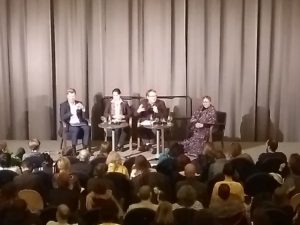
Germany 2018 – Visions for Agriculture 2050
In November 2018, a panel debate took place in Berlin, Germany: Visions for Agriculture 2050, with Vandana Shiva, president of Navdanya International and Norbert Lemken, head of the agriculture politics department of Bayer AG. The heated discussion centered mainly on the opposing views of the speakers. Norbert Lemken defined the discussion as “challenging”.
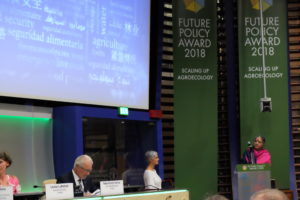
FAO 2018 – Future Policy Award
Following his participation in the International Biodiversity Congress in India, co-organized by Navdanya, the Chief Minister of Sikkim was invited in Rome to receive the Future Policy Award 2018 of the World Future Council, at the FAO Headquarters, for his work of transitioning the State of Sikkim to 100% organic. Navdanya’s role in the transition process has been recognized as fundamental to achieve this result.
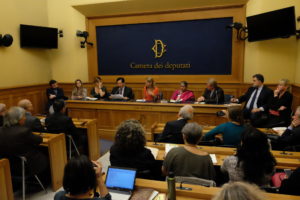
Italy 2018 – Press Conference with Chief Minister of Sikkim
To highlight and maximize exposure on this unique example of 100% organic, Navdanya International organized a Press Conference with Chief Minister Pawan Kumar Chamling and Dr Vandana Shiva at the Italian Chamber of Deputies in Rome, on 15 October 2018. The event was attended by Italian Parliamentarians, including the President of the Agriculture Commission at the Italian Parliament, and representatives of civil society movements and the press. Out of this meeting, new collaborations have been established with Italian MPs and members of the Agriculture Commission involved in the revision of the new National Action Plan on the Sustainable Use of Pesticides, planned for approval in 2019. The event highlighted that 100% organic is possible and gave impetus to the Italian Government’s new law on organic farming to be approved early in 2019, which – among other things – significantly introduces a label for Italian organic products, together with a national plan on organic seeds, to improve quality and quantity, including supply chain agreements to enhance organic production.
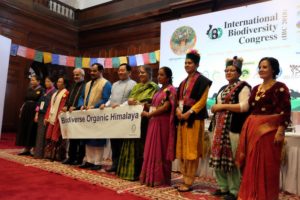
India 2018 – Launch of Biodiverse Organic Himalaya
During the first week of October 2018, Navdanya organized and hosted a wide series of events celebrating biodiversity at its Biodiversity Farm in India. The celebrations began with the Women’s Biodiversity Festival, where Diverse Women of the world planted Seeds of Freedom and Gardens of Hope, and communities from India and other parts of the globe cooked the diversity of breads and traditional dishes from around the world to launch “Our Bread, Our Freedom” campaign, to defend and promote traditional, indigenous foods, which are the expression of a value chain that works for nature and for the health and dignity of people. At the International Biodiversity Congress, held in Dehradun, Navdanya joined forces with women seed savers and organic leaders from the Himalayan Region to launch the movement for a Biodiverse Organic Himalaya, partnering with Pawan Kumar Chamling, the chief minister of Sikkim.
In October 2018, over 110 Civil Society Organisations in Europe launched the Citizens for Science in Pesticide Regulation, the coalition of calling for a more rigorous implementation of EU standards in pesticides regulation. The new coalition is calling for a reform of the current pesticide risk assessment and risk management system, the application of the ‘precautionary principle’ to ensure that decision makers rely on data that is complete, public, up to date and free from industrial bias. It has launched a manifesto which calls upon European regulators to urgently reform the current pesticide risk assessment and risk management system, and suggests practical solutions to the major failings. Click here to join the coaltion.
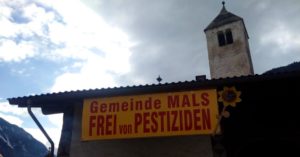
Photo: Il Sole 24 Ore
Navdanya is working with the community of Mals in Northern Italy which became the first place on Earth to ban pesticides by a referendum vote. Their colourful, courageous and ultimately savvy campaign is being heralded around the world as a landmark effort in the fight for toxic-free food and agriculture systems – and a model for other locales, near and far.
Also read:
Bhoomi 2017: Listening to the Mountains
A Precautionary Tale: How One Small Town Banned Pesticides, Preserved Its Food Heritage, and Inspired a Movement, by Allison Wilson, PhD – Independent Science News, 18 February 2018
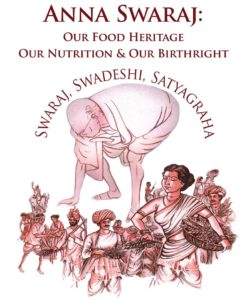 In August 2018, Navdanya launched the Anna Swaraj (Food Sovereignty) movement in India to make a collective commitment to quit poisons and chemicals in our food and disseminate knowledge on right nutrition, to decrease food and nutrition illiteracy so that we make informed choices on what we serve and eat as food. India’s food culture provides us with all the nutrition which we require to lead a healthy life. Join The Anna Swaraj Movement.
In August 2018, Navdanya launched the Anna Swaraj (Food Sovereignty) movement in India to make a collective commitment to quit poisons and chemicals in our food and disseminate knowledge on right nutrition, to decrease food and nutrition illiteracy so that we make informed choices on what we serve and eat as food. India’s food culture provides us with all the nutrition which we require to lead a healthy life. Join The Anna Swaraj Movement.
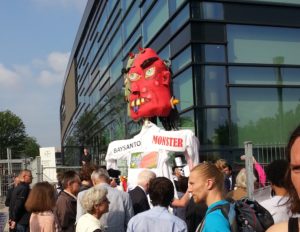
Germany 2017 & 2018 – Stop Bayer Monsanto actions
For the second year running since it began, a series of actions was co-organized in Germany. It kicked off in Düsseldorf with the “March Against Monsanto, Bayer & BASF” on May 19 and was followed, in Bonn, on May 24, by a press conference and a panel debate, organized by IFOAM – Organics International in cooperation with the Coalition Against BAYER-Dangers and Navdanya International. Farmers movements, environmental groups, trade unions and students organizations converged on May 25 at a protest in front of WCCB in Bonn, where the annual Bayer’s shareholders’ meeting was held. CSO’s representatives were also able to speak at the meeting inside the building.
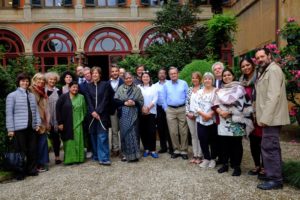
2018 – International Meeting of Experts on Food for Health
In May 2018, Navdanya International convened a Working Group of Experts, in continuation of the work of the International Commission on Future of Food and Agriculture, for a 2-day gathering in Florence, Italy, to brainstorm ideas and contributions, and streamline the vision and concept structure which would be the base for the drafting of the Manifesto “Food for Health: Cultivating Biodiversity, Cultivating Health”. Members of the group of experts are: Hilal Elver, UN Special Rapporteur on the Right to Food, Richard Falk, Professor of International Law Emeritus at Princeton University, Srinath Reddy, President, Public Health Foundation of India, Mira Shiva, Director, Initiative for Health and Equity in Society, Nadia El-Hage Scialabba, food ecology expert and former Environment and Climate Division at FAO, Patrizia Gentilini and Renata Alleva, International Society of Doctors for the Environment (ISDE) Scientific Committee, Salvatore Ceccarelli, International expert in Agronomy and Plant Genetics, Piero Bevilacqua, Author, Sociologist, Historian, Sapienza University of Rome, Guy D’hallewin, Coordinator at CNR – ISPA UOS Sassari, Sergio Bernasconi, former Head of Paediatric Clinic of the University of Parma, Lucio Cavazzoni, former president of Alce Nero (organic food & products) and bee-keeper. The Italian Edition of the Manifesto on Food for Health was presented at Sana, in Bologna, Italy, on 9 September 2018. An alliance of multi-disciplinary actors took root out of the Food for Health experts’ meetings, with the aim of spurring global dialogue and action towards building healthy food systems.
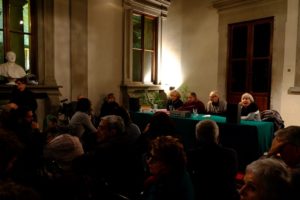
Italy 2018 – Corporate profits are poisoning our food, our soils and the planet. What is the alternative?
A series of conferences and meeting was organised by Navdanya International in collaboration with local partners in Florence, Italy, in January 2018. Particular focus was given to the commitment we must make to implement ecological solutions, such as caring for the soil, seeds and biodiversity as the essential basis for solving most of the crises we are facing, and the schism between politics, which should be in the interests of citizens, and the present economic unsustainable and exploitative model, as well as on the main threats to our democracy and freedom, such as Free Trade Agreements and Corporate Mergers and how these will affect the future of agriculture and food. Among the issues discussed, specific focus was given to the impact of globalization, which has progressively reduced the commons, including seeds and food, into commodities at the mercy of market fluctuations.

Indonesia 2017 – Agroecology Mobilization
In October 2017, Navdanya and JAGA Indonesia organized the mobilization tour “Celebrating Seed Freedom & Agroecology” in collaboration with local partners to lay the ground for a transition towards an agroecological food system for food sovereignty, nutrition, climate resilience and economic security. Of major importance were 3 agroecology practical training workshops which covered among other things, natural pest management. Using traditional knowledge Mr. Negi, Navdanya’s farmers’ training coordinator, showed how in any natural environment it is possible to find the resources and ingredients to both control pests and weeds, as well as to regenerate soil fertility.
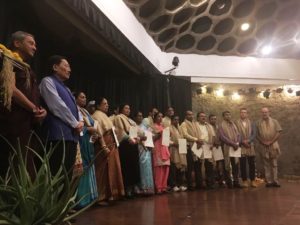
India 2017 – Launch of Global Network of Poison Free Organic Zones
On 1st October 2017, in New Delhi, India, Navdanya brought together communities from the Alps, represented by Ulrich Veith, Mayor of the pesticide-free village of Mals in Northern Italy, and communties from the Himalaya that are chemical free, to pledge to use the gifts of nature and their shared knowledge and culture, for a world free of poisons – thereby taking a pledge on Poison free Communities for each one of us to be part of a Global Network of Poison Free Organic Zones.
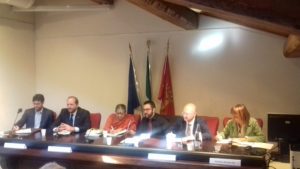
Italy 2017 – Agriculture week in Bergamo
In lead to the G7 to be held in Begamo, Italy, Navdanya International joined BioDistretto Agricoltura Sociale Bergamo, Coldiretti Bergamo and Confagricoltura Bergamo with the support of Bergamo Muncipality and Province in a series of workshops and conferences. What Navdanya underlined was how, from the experience of Bergamo with “biodistretti” (ecological districts) and the “social agricultural” models, an international network of communities, regions and cities can be created, which are able to affirm a new ecological paradigm based on circular economy.
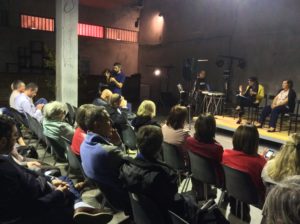
Italy 2017 – The right to Biodiversity, Health and a Safe Environment: workshop
In October 2017, in continuation of the work started in 2015 with Terra Viva, Navdanya International conducted a workshop in Rome, Italy, in collaboration with a a coalition of scientists, activists, lawyers, journalists, farmers, agronomists and concerned citizen from Sardinia. The workshop was focused on analysing the links between the way our food is produced and our health and the importance of promoting and creating poison-free agriculture and food systems, as well as how seed diversity and biodiversity conservation are the basis for good nutrition and represent the most significant indicators of environmental health.
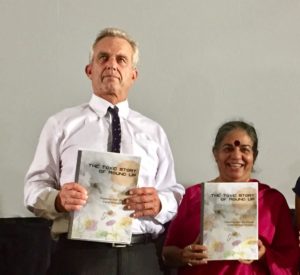
California 2017 – Launch of the Report “The Toxic Story of RoundUp”
At the National Heirloom Exposition of September 2017 in California, Navdanya launched its new report “The Toxic Story of RoundUp: Freedom from the Poison Cartel through Agroecology” to highlight the imperative of consolidating a global movement for creating a network of biodiverse, poison-free, organic agriculture throughout the world. Grassroots movements in California have created a coalition to ban the use of RoundUp on state properties in 2017 and an ongoing campaign against pesticides.
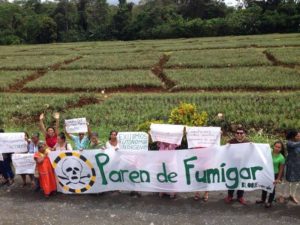
Costa Rica 2014-2017 – Moblization for GMO-free, Pesticides-free zones
The collaboration with environmental and scientific movements across Costa Rica started in 2014 has led, in 2017, to mobilizing a national campaign to “detoxify” communities and public places which are leading to many herbicides-free zones.
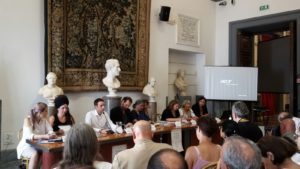
Italy 2017 – Conference: Poisons at the Door
The conference “Poisons at the Door: Food, health and environmental risks in the new global market“, took place in Rome, Italy, in July 2017 and was organised by Navdanya International and Esc Communications under the patronage of Council for the Environment of the Municipality of Rome. Participants in the panel debate were institutional representatives in charge of environmental issues, eminent scientist Dr Patrizia Gentilini, as well as representatives of Civil Society movements on the forefront in the defense of human and environmental rights.
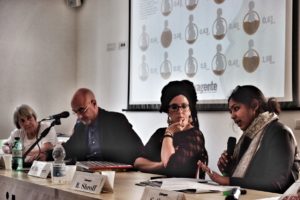
Italy 2017 – Launch of the Report – “Poisons in our Plate” – Glyphosate and Other poisons from field to table
In May in Rome, Italy, Navdanya launched the Report on Glyphosate and other poisons in Italian – (Il Veleno e’ servito: glifosato e altri veleni dai campi alla tavola), in collaboration with A Sud e CDCA. It has been produced in the context of both the imminent decision in the European Parliament on glyphosate license renewal and as part of the Navdanya global campaign against the Poison Cartel. The report describes how the whole agriculture industrialization process is based on the myth that it is through this system alone of production intensification that we will be able to feed the increasing world population and get rid of the hunger in the world.
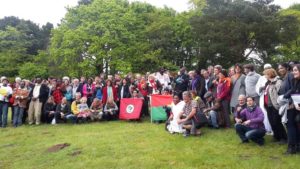
France 2017 – Creation of International Front of resistances to GMOs and Agrichemicals
In 2017, as a follow up of the work carried out in The Hague at the People’s Assembly, movements and organisations from 30 countries around the world gathered at the 2017 International meetings of resistances against GMOs in Lorient, France, where an International Front of resistances to GMOs and Agrichemicals was created and joint strategies against the corporate hijack of our seeds and the poisoning of our food were defined.
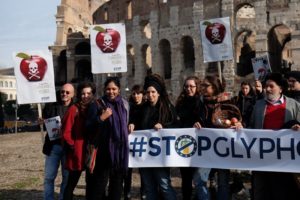
2017 – Launch of EU ECI to Stop Glyphosate
A global mobilization took place throughout 2017, and saw movements across the world organising multiple actions, including the Europe-wide movement to Stop Glyphosate, which initiated the European Citizen’s Initiative to Stop Glyphosate, reform EU procedures for the approval of pesticides and promote a new model of agriculture based on ecological methods. In less than five months, more than one million EU citizens joined the ECI. In spite of this strong opposition from civil society, in November 2017, the EU Appeal Committee approved the renewal of glyphosate license for 5 years, but the long and controversial process preceding this decision highlighted the deceitful strategies implemented by industry to keep its products on the market, as amply illustrated by some investigations, such as Monsanto Papers.
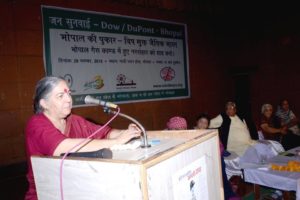
2016 Bhopal, India – People’s Assembly against Dow-Dupont
In November 2016, Navdanya – along with other civil society movements organised a People’s Assembly against Dow/DuPont in Bhopal, India. This was an assessment of Dow/DuPont’s crimes in terms of having committed genocide and ecocide. There are many cases being fought against Dow by the people of Bhopal, demanding justice for their losses and demanding to make the company liable for crimes against the people of Bhopal and to make sure no corporation in the world can get away with such heinous crimes.
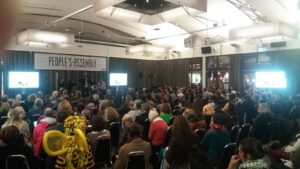
Netherlands 2016 – People’s Assembly and Monsanto Tribunal
At The Hague, in October 2016, a People’s Assembly and a Monsanto Tribunal were organised in The Hague, Netherlands, by Navdanya International, along with multiple citizens’ movements from across the world. The process of holding the Poison Cartel accountable for its crimes is the culmination of 30 years of scientific, legal, social, and political work by movements, concerned citizens and scientists, and brought out the evidence on the dangers and impacts of pesticides, particularly glyphosate based herbicides, such as RoundUp, significantly contributing in raising attention on the issue in the international debate and at the institutional level.
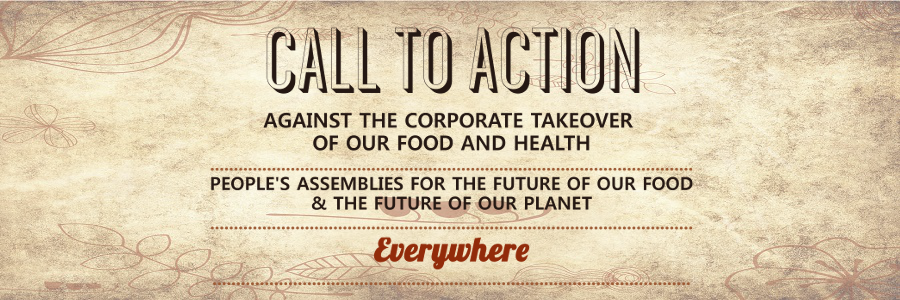
As part of the Monsanto Tribunal and People’s Assembly build-up actions, Navdanya co-organised and participated in conferences and events and organized workshops all over the world. More than 110 initiatives took place in 28 countries to join forces and collectively defend our Seed Freedom, Food Freedom and Democratic Rights to shape the future of food that protects life on Earth and the well-being of all.
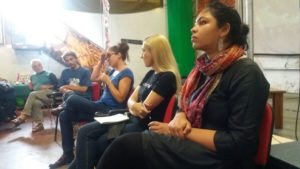
Italy 2016 – People’s Assembly
In October 2016, a popular meeting took place in Rome, Italy, as a platform to talk, discuss and find alternatives to the dominant agrochemical system model.
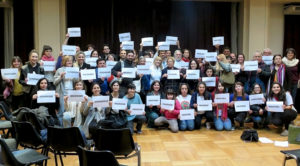
Argentina 2016 – People’s Assembly
In September 2016 “People’s Tribunals for Food Sovereignty (Tribunal de los Pueblos por la Soberanía Alimentaria)” took place across Argentina, to make visible the endless environmental problems caused by chemical agriculture as well as an agroecology fair with workshops and discussions regarding the Monsanto Tribunal.
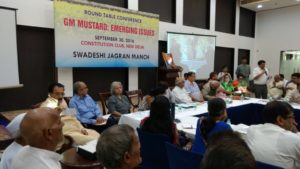
India 2016 – People’s Assembly against GM Mustard
In September 2016, in India, over 124 farmer groups, scientists, senior lawyers and activist joined with Navdanya to organise a national All India People’s Assembly against GM Mustard. Altogether the various groups represented over 10 million farmers, along with millions of other Indians.
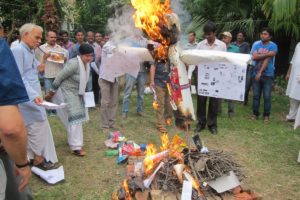
India 2016 – Monsanto Quit India
In India, in August 2016, a Monsanto Quit India action took place at Allahbad. The citizens of Allahabad burnt effigies of poison making corporations like Monsanto responsible for food style diseases like cancer, obesity and diabetes. This was an attempt to spread awareness of these companies and a call for their total boycott all over India.
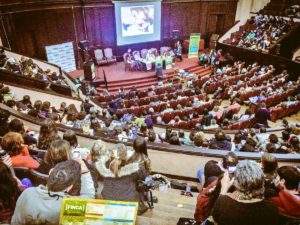
Argentina 2016 – Mobilization Tour
In June 2016, on the occasion of the 3rd International Environmental Film Festival, Dr Vandana Shiva gave several talks, intervened in panel debates, including an address at the Argentina Senate during the meeting of the Commission for the Environment and sustainable development. The Festival became a unique space and opportunity for civil society organizations, associations, environmental lawyers’ groups, doctors and activists to share knowledge, propagate information and strategize actions both at the local level as well as on the international level through the presence of a broad Argentinean delegation at the People’s Assembly & Monsanto Tribunal at The Hague.
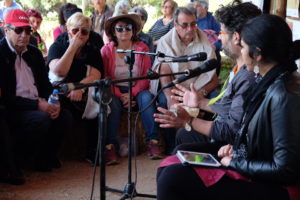
Greece 2016 – Seed Freedom Festival
In May 2016, people and organisations from all over the world attended the 16th Seed Festival at Peliti, Greece where several workshops were held on the upcoming Monsanto Tribunal and People’s Assembly in The Hague.
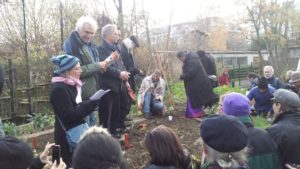
France 2015 – Launch of Citzens’ Pact on World Soil Day
On the afternoon of World Soil Day – December 5, 2015 – on the occasion of COP21, leaders in defense of life and of our Planet, representatives of Seed Savers – Community Supported Agriculture Networks, spiritual leaders, artists and concerned citizens gathered at La Villette in Paris for the launch of Citizens’ Pact to protect the Plaet and Each Other and planted a ‘Garden of Hope’ as a reminder that our seeds, our soils and our biodiversity, kept in the hands of local farmers and caring citizens, are solutions to climate change, to which Industrial globalised agriculture makes a significant contribution.
Click HERE for more Events and Actions
POISON FREE FOOD AND FARMING MOVEMENT AROUND THE WORLD
–
Testimonials
Sri Lanka’s shift towards organic farming
Celebrating Biodiversity, Agroecology and Organic Food Systems with Navdanya
A 100% organic world is possible. The Indian state of Sikkim shows us how
Glyphosate ditched by California University
Hawaii: Gen Z must carry on to protect planet

